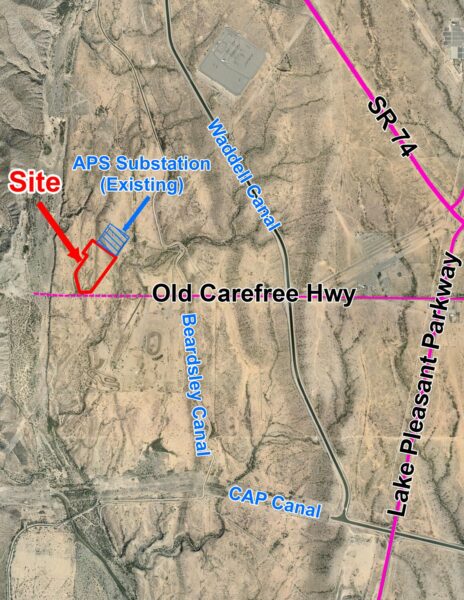
By Cronkite News
Political experts put the value of an endorsement somewhere between “inconsequential” and “good for growing email lists and gathering volunteers.”
And that’s the upbeat assessment.
But that hasn’t stopped candidates from spending time getting and trumpeting endorsements, from businesses, labor unions, nonprofits and each other.
In recent weeks, former Secretary of State Hillary Clinton flaunted a list of more than 60 former and current officials in Arizona who have endorsed her Democratic campaign for president, creating what she calls the Arizona Leadership Council.
And former state Rep. Victoria Steele has touted endorsements from Rep. Raul Grijalva, D-Tucson, and the American Federation of State, County and Municipal Employees Arizona Retirees’ chapter, in her bid for the Democratic nomination in the 2nd Congressional District.
Experts say endorsements can give a campaign a bump, or bring in some money, but that the effect varies with the size of the race and the size of the endorsement. And it’s complicated by the fact that in election years like this one, when there appears to be a strong anti-establishment current to the campaigns, some endorsements might even backfire.
“It’s a complicated science,” said Doug Cole, the senior vice president of Phoenix-based political consulting firmHighGround. The complications, he said, include the scale of the election and voter awareness.
“In presidential campaigns, voting is very personal. Endorsements are not as impactful because voters have already made up their minds,” Cole said. “What a congressman thinks or doesn’t think at this level is pretty inconsequential.”
Still, most members of the state’s congressional delegation have already chosen sides in the presidential campaign, with eight of the 11 on record supporting six different presidential hopefuls – including two who have already dropped out. Sen. John McCain, R-Arizona, endorsed the failed candidacy of Sen. Lindsey Graham, R-S.C., and Rep. Trent Franks, R-Glendale, had backed former Arkansas Gov. Mike Huckabee.
Only two candidates have won more than one Arizona congressional endorsement: Florida Sen. Marco Rubio has the backing of Sen. Jeff Flake, R-Arizona, and Rep. Matt Salmon, R-Mesa, while Democratic Reps. Ruben Gallego of Phoenix and Ann Kirkpatrick of Flagstaff are both members of Clinton’s Leadership Council.
Matt Dallek, a political science professor at George Washington University’s Graduate School of Political Management, said that while the size of Clinton’s team will help “reinforce the idea that she has the backing of the Democratic Party,” it won’t ensure a win.
“The endorsements don’t necessarily mean votes,” Dallek said, who echoed the possibility of an establishment backlash.
“It actually might reinforce what (Clinton challenger, Vermont Sen. Bernie) Sanders has been saying about her being part of the establishment. It could be used against her,” Dallek said.
But Cole said that in smaller-scale elections, endorsements can actually mean something to voters. That could be true for candidates like Steele, whom Grijalva called a “clear choice for Congress” in his endorsement.
“In local races, like state representative and legislative races, endorsements have more of an effect,” Cole said. “People are busy, and in these down-ballot races, voters look to others for advice on who to vote for, from names they know.”
Steele said in an email that she was “honored and humbled” to get Grijalva’s endorsement, noting that his support – and “the support of thousands of others across the district” – would help “start a new conversation in Washington.”
Dallek said endorsements by organizations or nonprofits can help build a candidate’s brand and garner a following, but that it’s still not a guaranteed path to success. He pointed to Clinton’s recent endorsements from Planned Parenthood as an example.
“Her being able to say she has their support means being able to say, ‘Look, they’ve seen my record, visions and ideas and they think I’m the best-suited candidate to promote the progressive ideals of Democratic women,’” Dallek said.
“But that doesn’t necessarily mean young women are going to flock to her,” he said. “There’s still a limit to which endorsements can help.”
Bill Scheel of Phoenix consulting firm Javelina said that, over time, the act of endorsing a candidate has lost its value as more and more “anti-establishment” politicians run for office.
“It really varies from camp to camp,” Scheel said. “Some candidates, like Bernie or (Republican presidential hopeful Donald) Trump, are running an anti-establishment campaign, so an endorsement by a congressman could actually be detrimental.”
Scheel said an endorsement is sometimes more beneficial to the politician making the endorsement than it is to the one receiving it.
“By endorsing someone, they’re building alliances for the future and sending signals as to where they stand on certain issues,” Scheel said of those making endorsements. “Some are trying to find the winners … to increase their influence or possibly grab a Cabinet position.”
Cole agreed, saying that endorsements can lead to future favors or funding.
“If the endorsement is successful, the candidate is beholden to a certain debt of gratitude,” Cole said. “Local endorsement helps not so much with voters as much as it does with donors, which could mean more in the long run.”
Dallek said that, in the end, candidates need more than just the verbal support of either politicians or organizations.
“Endorsements and money, in and of itself, don’t make for a winning campaign,” Dallek said. “Both have to intersect with other elements of a candidate’s campaign in order to be successful.”
Choosing sides
Arizona’s congressional delegation and whom they have endorsed in this year’s presidential campaign:
– Sen. John McCain, R-Arizona: Lindsey Graham
– Sen. Jeff Flake, R-Arizona: Marco Rubio
– Rep. Ann Kirkpatrick, D-Flagstaff: Hillary Clinton
– Rep. Martha McSally, R-Tucson: None yet
– Rep. Raul Grijalva, D-Tucson: Bernie Sanders
– Rep. Paul Gosar, R-Prescott: Ted Cruz
– Rep. Matt Salmon, R-Mesa: Marco Rubio
– Rep. David Schweikert, R-Fountain Hills: None yet
– Rep. Ruben Gallego, D-Phoenix: Hillary Clinton
– Rep. Trent Franks, R-Glendale: Mike Huckabee
– Rep. Kyrsten Sinema, D-Phoenix: None yet











